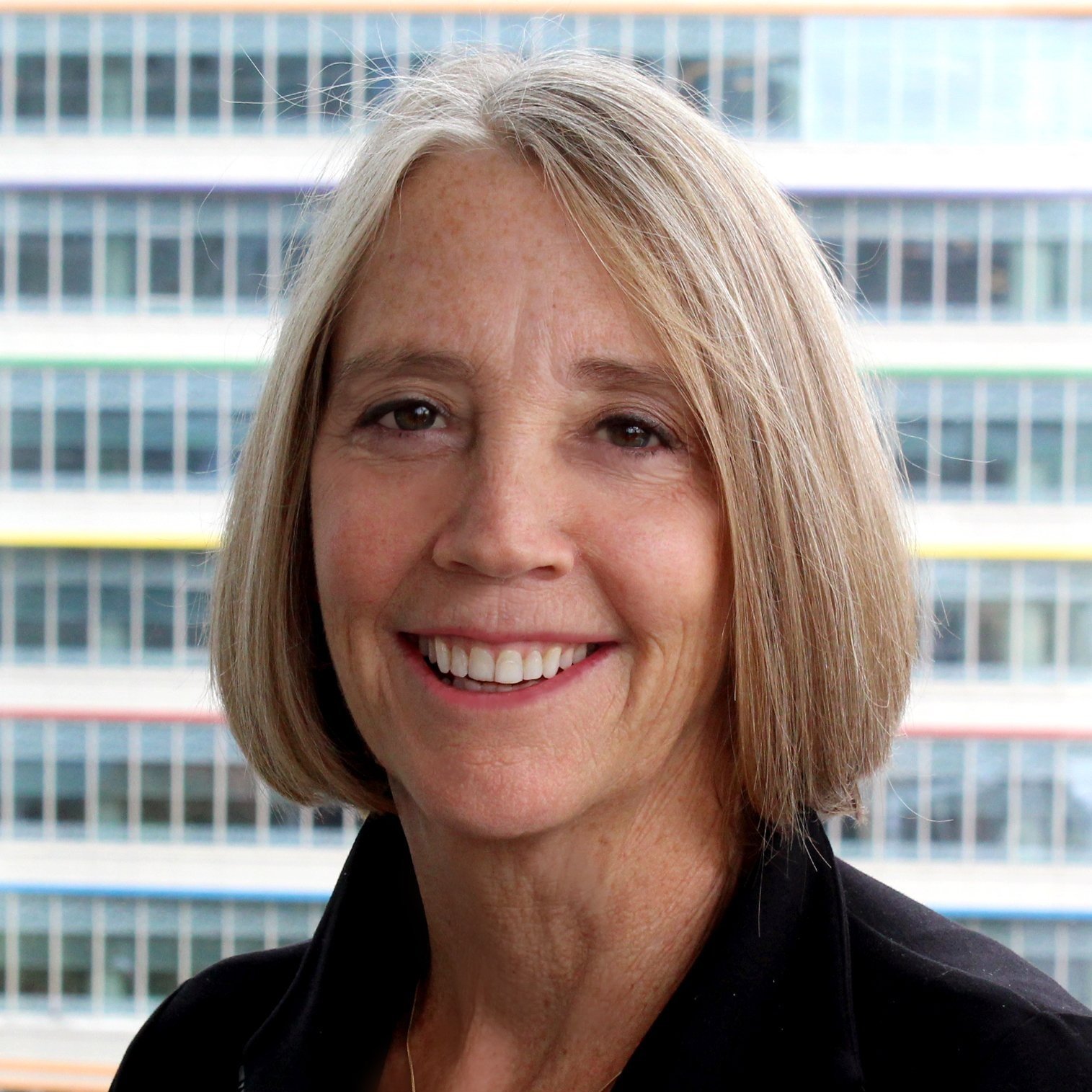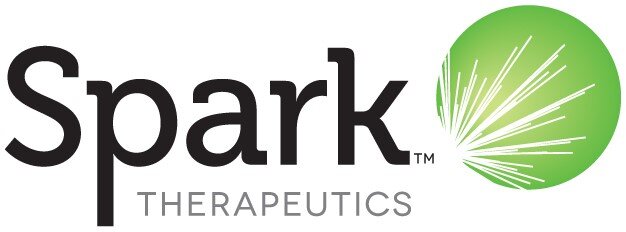The Hereditary Disease Foundation Research Spotlight Webinar series features brilliant scientists working to identify treatments and cures for Huntington's disease and other brain disorders. This Webinar series is designed for the general public. Scientists will discuss their work in non-technical language. Hereditary Disease Foundation webinars are open to all free of charge.
See full lineup for our 2024 Research Spotlight Webinars
Watch HDF’s Director of Research Programs Sarah Hernandez’s Huntington's Disease Research: History and Hope webinar anytime.
Watch our April 2024 Research Spotlight Webinar, “Developing Transformative Tools: Gene Therapy for Huntington's Disease” featuring 2023 Transformative Research Award recipients Beverly Davison, Leslie Thompson, and Jang-Ho Cha
About the Speakers
Beverly L. Davidson, PhD, Principal Investigator
Children’s Hospital of Philadelphia
University of Pennsylvania
Beverly Davidson’s laboratory focuses on genetic diseases that affect the brain, investigating how mutant gene products contribute to disease, and why certain brain regions are more susceptible than others. Her team employs advanced molecular methods, sequencing and imaging in animal models, and a variety of molecular tools to test various hypotheses. Her lab is also developing next generation therapeutics for inherited disorders, including the engineering of novel gene therapy vector capsids and cargo to approach tissue and cell type specific treatments. Recent honors include the 2023 National Ataxia Foundation’s Dr. John W. Schut Research Achievement Award. She is immediate past president of the American Society of Gene and Cell Therapy, the largest international association of gene and cell therapy research. She is an elected member of both the American Academy of Arts Sciences and the National Academy of Medicine. Dr. Davidson received the HDF’s Leslie Gehry Brenner Prize for Innovation in Science in 2015.
Leslie M. Thompson, PhD, Co-Investigator
University of California, Irvine
Dr. Leslie Thompson has studied Huntington’s disease for most of her scientific career. She was a member of the the HDF’s Venezuela Project that identified the causative gene for HD in 1993. She is trying to understand how the HD mutation damages brain cells and identify targets for new drugs to prevent or ameliorate the damage. She is also looking at how the mutation influences modifications of the huntingtin protein and other cellular molecules. In addition, Dr. Thompson worked with a group of investigators to establish the HD patient-derived iPS cell consortium (induced pluripotent stem cells) and is using stem cells to study HD through multi-institutional collaborations and Big Data approaches. She is currently evaluating the use of human neural stem cells as a possible therapy for HD. Dr. Thompson is an American Association for the Advancement of Science fellow. She received the HDF’s Leslie Gehry Brenner Prize for Innovation in Science in 2013.
Jang-Ho J. Cha, MD, PhD, Co-Investigator
Latus Bio, Inc.
Jang-Cha is the Chief Scientific Officer, Latus Bio, Inc. Previously, he was the Global Head of Translational Medicine, Neuroscience at Novartis. He obtained his MD and PhD from the University of Michigan and did his residence in neurology at Massachusetts General Hospital in Boston, MA. During his career at Massachusetts General Hospital, Dr. Cha held multiple positions culminating in Associate Professor of Neurology.
Thank you to our sponsors!
Join us on Tuesday May 14, 2024 for our Research Spotlight Webinar, “Drugs and Trials for Huntington’s Disease: The Good, The Bad, and The Future” featuring C. Frank Bennett and Ed Wild
About the Speakers
C. Frank Bennett, PhD
Ionis Pharmaceuticals
2019 Breakthrough Prize in Life Sciences
Dr. C. Frank Bennett is one of the founding members of Ionis Pharmaceuticals, leading much of their preclinical antisense drug discovery and antisense technology research. He has been involved in the development of antisense oligonucleotides as therapeutic agents, including research on the application of oligonucleotides for inflammatory, neurodegenerative diseases and cancer, oligonucleotide delivery, pharmacokinetics and medicinal chemistry. He has published more than 230 papers in the field of antisense research and development and has more than 175 issued US patents. Dr. Bennett collaborated with Adrian Krainer, of Cold Spring Harbor Laboratory, to develop Spinraza, the first effective therapy for spinal muscular atrophy (SMA), a progressive neurodegenerative disease and the number one genetic cause of death for infants. Dr. Bennett received HDF’s 2018 Leslie Gehry Brenner Prize for Innovation in Science.
Edward Wild, PhD, FRCP
University College London, United Kingdom
Dr. Ed Wild is a Professor of Neurology at University College London, a Consultant Neurologist at the National Hospital for Neurology and Neurosurgery in London’s Queen Square, and Associate Director of UCL Huntington’s Disease Centre. He leads a team of researchers aiming to accelerate the development of new therapies to make a real difference for people impacted by Huntington’s disease. He gave the first injection of tominersen in 2015 and has been involved in the design and running of numerous HD clinical trials. He co-founded HDBuzz in 2010.
Thank you to our sponsors!
Watch our March 2024 Research Spotlight Webinar featuring Jeffrey Carroll, Rachel Harding, and Tamara Maiuri
About the Speakers
Jeffrey Carroll, PhD
University of Washington
Jeff Carroll is an Associate Professor in the Department of Neurology at the University of Washington. His scientific interest is in the understanding the systemic effects of Huntington’s Disease, especially metabolic changes, which he studies using a mouse “knock-in” model of Huntington’s disease. He also has an interest in gene silencing approaches to HD therapeutics, particularly using antisense oligonucleotides (ASOs). Jeff’s PhD and postdoctoral studies all involved using mouse models to understand basic mechanisms of HD and preclinical testing of therapeutic interventions in these models. During his PhD he trained with Michael Hayden (UBC), his postdoctoral studies were conducted under the supervision of Marcy MacDonald (MGH, Harvard Medical School). As well as conducting research, Jeff is a member of an HD family and himself carries the mutation which causes the disease.
Rachel Harding, PhD
University of Toronto, Canada
Rachel Harding is an Assistant Professor at the Department of Pharmacology and Toxicology and a Principal Investigator at the Structural Genomics Consortium. Rachel completed her undergraduate and DPhil in structural biology at the University of Oxford, before moving to the University of Toronto for her postdoctoral training. The focus of Rachel’s research is the huntingtin protein, mutated in people with Huntington’s disease. Huntington’s is a devastating, incurable, genetic, neurodegenerative disease caused by a CAG-tract expansion in the Huntingtin gene. Rachel studies the structure-function of the huntingtin protein in both its wildtype and disease forms, with a view to better understand the mechanisms of disease, as well as trying to find new avenues of therapeutic intervention.
Tamara Maiuri, PhD
McMaster University, Hamilton, Ontario, Canada
Tamara Maiuri is a Research Associate in Dr. Ray Truant's group at McMaster University, Canada. Prior to joining the Huntington's disease field, Tamara obtained her PhD from the Medical Biophysics Department at the University of Toronto where she studied the cell biology of cancer-related genes. Her work in the Truant lab focuses on the normal biological functions of the huntingtin protein in hopes of understanding how they may be disrupted upon inheritance of the mutant huntingtin gene that causes HD.
Thank you to our Sponsors!
Full 2024 webinar lineup
Through your tax-deductible donations to the Hereditary Disease Foundation, we can accelerate urgently needed research breakthroughs.















